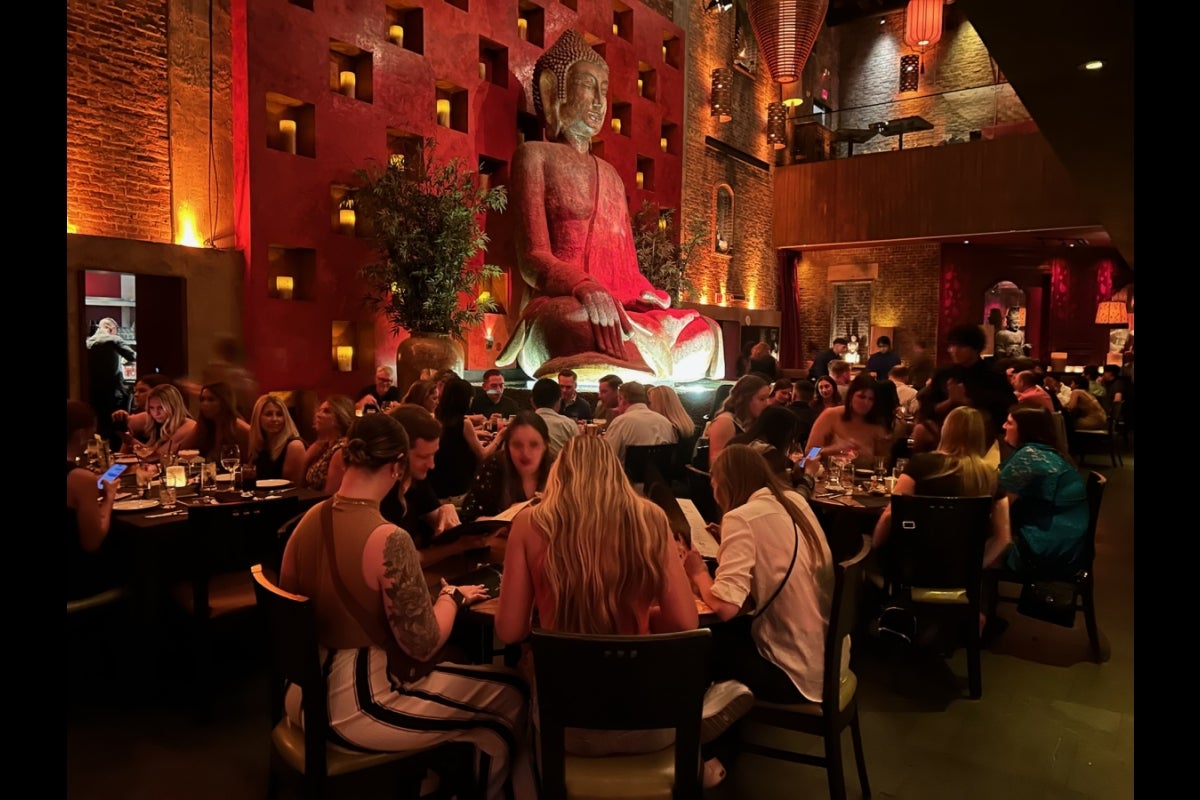Psychology students inspired to lead change after WPA Conference

New College representing ASU at the 2025 Western Psychological Association (WPA) Conference in Las Vegas. Pictured (left to right): Professor Aris Karagiorgakis, Cierra Starkel, Brock Barnett, Melissa Utter, Ashley Cleveland and Sara Nowdomski.
When a group of ASU's New College psychology students attended the 2025 Western Psychological Association (WPA) Conference in Las Vegas, they expected to learn. What they didn’t expect was how deeply the experience would shape their academic paths, career goals, and sense of purpose.
Held May 1 – 4, the WPA Conference is one of four major regional gatherings sponsored by the American Psychological Association (APA). This year’s theme, “Psychology Applied to Everything,” resonated strongly with the ASU attendees — most of whom are general psychology majors with wide-ranging interests. The conference showcased the real-world impact of psychological science through engaging poster sessions, cutting-edge research talks and interactive workshops on topics like forensic psychology, program evaluation, mental health and emerging tech.
For ASU forensic psychology major Ashley Cleveland, the experience was nothing short of transformative. “This conference was an opportunity to dip our toes into the deep ocean of psychology,” she said. “The talks were riveting and full of passion — a passion I never knew existed. I want nothing more than to be a facilitator of positive change and it was a privilege to be in a room full of people doing exactly that.”
Ashley’s words echoed the sentiment felt by many of her peers. Each student chose sessions that matched their unique interests and aspirations. They weren’t just passive listeners — they were active learners, critical thinkers and most importantly, future changemakers.
From classroom to conference: a milestone in student development
”This was their first experience at a professional conference, and it was incredibly impactful for their personal and professional growth in the field of psychology. Attending a conference like this will have lasting effects on their development, providing them with exposure to the full range of possibilities in psychology and opening doors for future opportunities,” said Aris Karagiorgakis, assistant professor of psychology at ASU’s New College of Interdisciplinary Arts and Sciences.
“I returned to college as a non-traditional student to become a researcher, but that desire was more conceptual than concrete,” said Melissa Utter. “Attending the WPA conference allowed me to engage with what I want to do and who I want to be in a tangible way.”
From the impact of AI and social media on attention spans to systemic issues in the justice system, students encountered the complexity of real-world challenges and saw how psychological science could offer solutions. The exposure to current, unpublished research and conversations with leading scholars gave students a sense of urgency and agency in their chosen field.
“I feel really grateful for this experience because I was able to learn about current research that is not yet being taught in the classroom,” said Brock Barnett, who plans to pursue graduate studies in clinical counseling. “It’s become clear that our world is far from perfect, and I hope I can use what I learned to better empathize with people who have had different experiences than myself.”
The conference also emphasized the importance of staying connected to innovation. Cierra Starkel, another psychology major, found herself drawn to sessions exploring how modern distractions affect learning and well-being.
“I loved learning about very current topics like ‘Building Learning Skills in a World of AI, Reels, and TikTok’ and *‘Flow 2.0: Optimal Experience in a Complex World,’” Starkel said. “It opened my eyes to how fun, important and intentional it is to keep up with new developments in the areas you’re interested in.”
For all the ASU students in attendance, WPA 2025 was more than a professional event—it was a turning point. It opened their eyes to the vast scope of psychology and showed them that they, too, could contribute to a more compassionate, informed, and equitable world.
As these students return to their studies at ASU, they bring with them more than just notes and ideas—they bring conviction. A conviction that psychology can drive real change. A conviction that they have a role to play. And a conviction, as Cleveland put it, “to be facilitators of positive change.”


